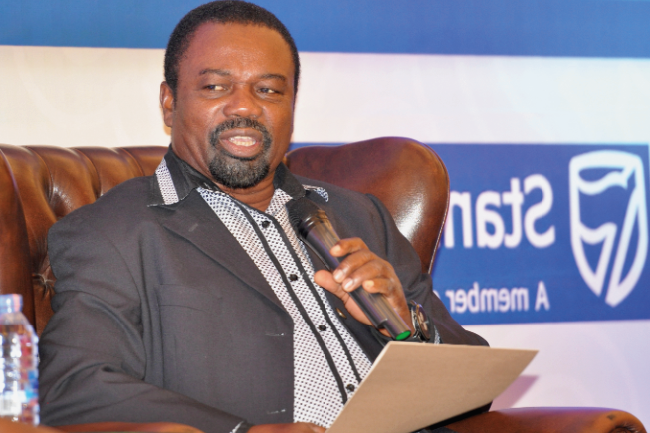Recommendations of the Annual New Year School and Conferences (ANYSC) should be given serious attention by the government to spur national development.
This was the view of two experts who expressed concern about the non-implementation of the recommendations of the annual policy dialogue series.
The experts are the Dean of the Ghana Armed Forces Command and Staff College, Dr Vladimir Antwi-Danso, and the Director of the New Year School, Dr John Kwame Boateng.
Speaking separately with the Daily Graphic, they said for many years now, outcomes of the ANYSC had not fully been utilised to engender national development.
So far, the NHIS stands out as the only policy outcome of the ANYSC that has been implemented.
Many of the recommendations and views shared at the 72-year policy dialogue forum have not filtered into national policy programmes as the country grapples with development challenges.
Context
The New Year School is a regular feature on Ghana’s calendar, but its outcomes have become a permanent stock on library shelves.
The annual policy dialogue series is normally attended by experts from fields under discussion, high-profile personalities, academics, representatives from the various local assemblies, the business community, as well as a cross-section of the public.
Concerns
There are concerns that most of the outcomes and recommendations of the school are gathering dust on the shelves of public libraries, thereby bringing to question the relevance of the dialogues.
Dr Antwi-Danso said recommendations from the annual policy dialogue had not filtered through government policies, apart from the NHIS, which was implemented in 2001, several years after it was proposed.
“The government doesn’t implement the recommendations from the policy dialogue because, from my little research, most of the outcomes are post anti-reaction to its policy,” he said.
“This means that the government’s agenda does not tally with what the New Year School recommendations come with,” he added.
Government agenda
Dr Antwi-Danso, who has been involved in the organisation of the annual policy dialogue since 1988, said even with the NHIS, many years had passed after the recommendation from the policy dialogue forum before the government started with its implementation.
“I believe the non-implementation is because of the non-alignment of the school’s agenda with the government’s,” he added.
He said the organisers must not let the outcomes of the ANYSC gather dust on the shelves and urged them to also lobby to get the government to adopt the recommendations in policy formulation.
“They must also find a way to disseminate and popularise the outcomes; they must find a way to lobby the government to accept the outcomes,” he said.
“I am very happy to say that the enthusiasm in the New Year School has not waned,” he added.
Not adopted
For his part, Dr Boateng expressed worry that public institutions had not adopted and implemented the recommendations of the ANYSC.
He said the School of Continuing and Distance Education of the College of Education of the University of Ghana had struggled over the years to raise funding for the organisation of the annual event and follow up on the implementation of communiques issued.
He said the school lacked funding to follow up on the recommendations of the annual policy dialogues.
“We would want to follow up on public institutions to see how the outcomes of the ANYSC are being implemented, but we don’t have the funding for that,” he said.
He, therefore, proposed a national dialogue on some of the outcomes and recommendations of the school for policy adoption.
“I think we need a national dialogue on how best we can inculcate the recommendations of the ANYSC into policies,” he said.
“We have identified the problems and challenges confronting us as a nation and have proposed many solutions to the problems; it is now left for policy makers to utilise them to solve our socio-economic challenges,” he added.
This year’s dialogue
This year’s dialogue focused on the global health crisis due to the devastating effect of the COVID-19 pandemic on economies and lives.
The usual week-long programme was shortened to two days due to the pandemic.
In 2020, the 71st New Year School ended with a call on the governments to reset Ghana’s international relationship policy to reflect the Ghana Beyond Aid (GhaBA) agenda.
Participants, in a communique, recommended that Ghanaians develop and enhance their negotiation skills to explore more beneficial commercial and economic trade agreements.
It said in order to ensure that the GhaBA became a national transformation agenda, the government’s exit strategy for aid should involve comprehensive education on a new mindset and national orientation through advocacy and sensitisation of different demographic groups to ensure broader participatory development.
Previous recommendations
In 2019, a communique issued after the 70th ANYSC called for the institution of sanctions against political parties which flouted the regulations governing party funding, accountability and transparency in their operations, among others.
In 2018, there was a call for a policy that would mandate all state agencies to purchase made-in-Ghana products.
The participants, in a communique, said as a way of ensuring that Ghanaian products were competitive domestically and globally, the government, through the Ghana Standards Authority and other regulatory agencies, should strictly enforce international standards through local associations for the production of goods and services.

